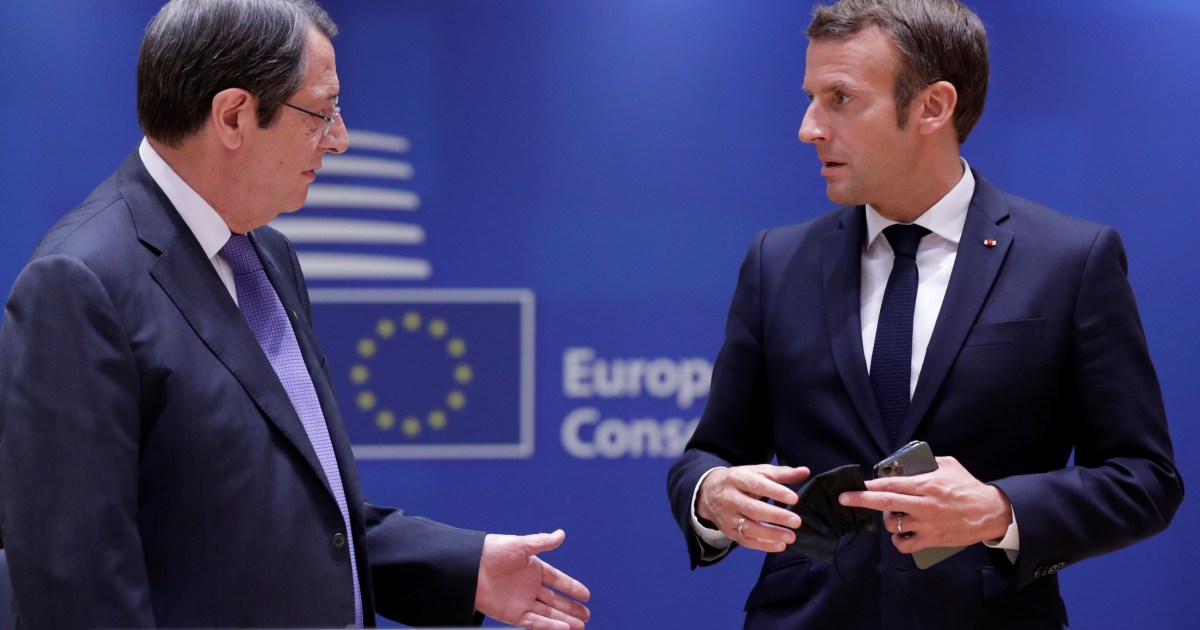NATO announced today that Greece and Turkey have reached an agreement on a mechanism to end the military clashes between them in the Eastern Mediterranean region, while the statements of European Union leaders meeting today in Brussels regarding imposing sanctions on Turkey, due to its activities to explore oil and gas in disputed areas On it in the eastern Mediterranean.
A NATO statement said that the Turkish and Greek military delegations had reached - after a series of technical meetings inside NATO headquarters in the Belgian capital, Brussels - an agreement on a bilateral military mechanism to resolve disputes.
This mechanism aims to reduce risks, accidents and military confrontations in the eastern Mediterranean, and also includes establishing a hotline between Greece and Turkey to facilitate conflict resolution at sea or in the air.
NATO Secretary-General Jens Stoltenberg welcomed the agreement, and said that the understanding on the dispute resolution mechanism was made thanks to the constructive commitment of Turkey and Greece (the two countries that are members of the alliance), and the NATO official said that this mechanism would allow the creation of a space for diplomatic efforts to address differences.
In the same context, the Turkish Ministry of Defense stated - in a statement - that a meeting will be held on the fifth of this month at NATO headquarters to discuss the technical details of the coordination mechanism to avoid clashes.
Background of the talks
One of the motives behind the Greek-Turkish military talks was a minor collision between Turkish and Greek frigates weeks ago, and an increase in military maneuvers by the two countries' navies in the Mediterranean.
In the past few months, tension and exchange of accusations have escalated between Turkey on the one hand, and Greece on the other hand, supported by European countries, led by France, regarding the maritime borders in the eastern Mediterranean region, which in recent years has witnessed the discovery of huge reserves of natural gas.
While Turkey says it will defend its maritime rights in the eastern Mediterranean, demanding that the borders with Greece and Cyprus be demarcated in a fair manner;
Greece and Cyprus accuse Turkey of violating their maritime areas of influence by sending ships to seismic searches for energy resources.
European Summit
Prior to the start of the extraordinary European summit today in Brussels, French President Emmanuel Macron said that the European Union countries should show solidarity with Greece and Cyprus in the eastern Mediterranean crisis, and Macron stressed that this solidarity "is not subject to negotiation."
"When a member state of the European Union is attacked and threatened and its territorial waters are not respected, it is the duty of the Europeans to show solidarity, and we will repeat our support for Greece and Cyprus, but we must also find ways to engage again in a difficult dialogue with Turkey," the French president added.
For its part, Greece and Cyprus are pressing to impose European sanctions on Turkey, as Cyprus obstructs efforts by its European Union partners to impose sanctions on the ruling authorities in Belarus, and Nicosia has called on Brussels first to take a stance on Turkey's exploration of oil and gas in its waters.
Turkey does not want injustice to any country riparian to the eastern Mediterranean, but only wants to obtain its right and the fair right of # Cyprus to the wealth hoarded in its economic waters, and it rejects the Greek view that its borders start from any island even if it is far from the borders of # Turkey https: / /t.co/534sPWTpgF@profahmet_uysal
- Al Jazeera for Studies (@AJStudies) September 30, 2020
Cyprus won Austria’s support in the issue of punishing Turkey, as Vienna criticized the leaders of the rest of the union’s member states for not supporting Nicosia, and Austrian Chancellor Sebastian Kurz said, “The union should finally show President Erdogan our red lines. This means ending accession talks and imposing sanctions.”
There is no unified position
and the draft statement of the extraordinary European summit did not include an agreed position on Turkey, as Germany does not want to disrupt separate talks between Ankara and Athens on many issues, including immigration, by imposing European sanctions on it, and calls for giving priority to diplomatic means to resolve the dispute with Turkey.
Earlier yesterday, German Chancellor Angela Merkel - in a speech in her country's parliament - stressed the importance of the European Union's cooperation with Turkey.
She explained that the Union has multi-dimensional relations with Turkey, and "we must balance our relations again with it." Merkel praised Turkey's hospitality for refugees, noting that she is also a member of NATO.
A high-ranking German official ruled out that the European summit today includes plans to impose sanctions on Ankara.
Before the start of the summit, Turkish President Recep Tayyip Erdogan sent a message to European leaders - except for Greece and Cyprus - in which he confirmed that Turkey's relations with the European Union are facing a new test.
Erdogan pointed out that "Greece and Cyprus are the cause of the problems, not Turkey," reiterating his country's readiness for unconditional dialogue with Greece on the maritime border disputes in the eastern Mediterranean, noting support for NATO's initiatives in this context.

